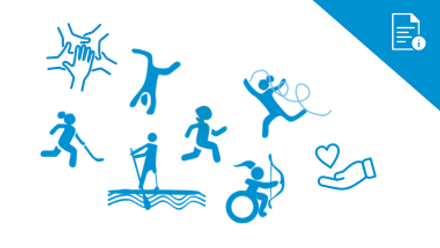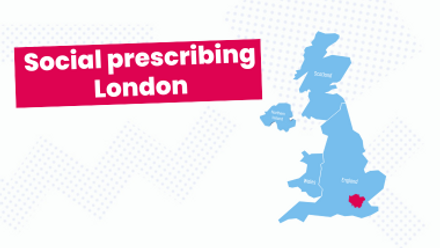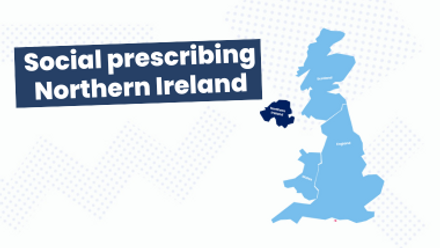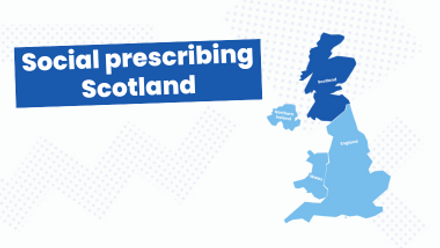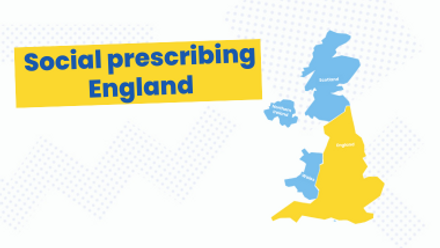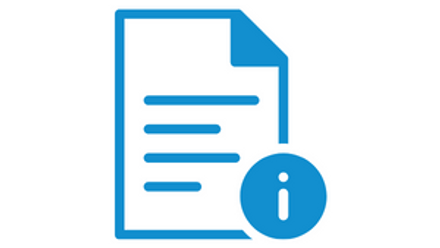Eating disorders
An understanding of mental health issues such as depression, anxiety and eating disorders should be embedded throughout sport and physical activity at all levels.
By having a deeper awareness of these issues, coaches can learn to become more alert to the subtle signs and symptoms.
Building a good rapport with the people you coach will also help you spot any red flags and will increase the likelihood of your participants confiding in you. This information sheet provides further insight for coaches on eating disorders. See Beat’s page on eating problems for more information and advice on where to get help.
Depression
Lots of people feel low sometimes, but when someone’s depressed those feelings can carry on for months or even longer.
Depression is a mood disorder that makes someone feel down all the time and stops them from being able to enjoy their life. Depression can have a big effect on your, but you’re not alone. There are lots of ways to get support, cope and start to feel better.
Childline has more information for young people on depression and where to get help, including signs & symptoms, coping mechanisms, and how to take care of yourself.
Mind also provide further information, including self-care, treatments ad useful contacts. This information sheet provides further insight for coaches on depression, and the subtle signs and symptoms to look out for.
Anxiety
Anxiety is where you often feel worried or afraid and this stops you from living your normal life. Panic and panic attacks might also be experienced.
Almost everyone gets anxious sometimes, but if your anxiety is stopping you from being able to live your life or do things you normally enjoy then it’s important to get support.
If you are diagnosed with anxiety, you may be given a diagnosis of a specific anxiety disorder, such as;
General anxiety disorder
Social anxiety disorder
Phobias
Body dysmorphic disorder
Obsessive compulsive disorder
Post traumatic stress disorder
Childline’s page provides further information and support on anxiety.
Mind also provide more information and support on anxiety.
By having a deeper awareness coaches can learn to become more alert to the subtle signs and symptoms, see this information sheet for support.
Youth gambling
Latest figures from the Gambling Commission show 55,000 children are classed as having a gambling problem and the NHS estimates there are around 400,000 people with a serious gambling problem in England.
Gambling is associated with mental health in different ways. To start with, some young people gamble to escape from problems or bad feelings. Almost one in five (18%) of 11-16 year olds in a recent Young People and Gambling Survey said that they would be more likely to gamble if they were worrying about something. As well as this, if gambling gets out of hand it can have serious effects on mental health, causing stress, anxiety and depression. Another issue is that young people with existing mental health concerns are more at risk of harmful gambling.
To increase your awareness on youth gambling, you can sign up for a free workshop with YGAM, which is city and guilds accredited. Please click here to book your place.
Bullying
Young people who have experienced bullying are more likely to develop an anxiety disorder or suffer from depression. The same applies to those that are isolated and have difficulties with friendships at school.
- Fears and worries are a normal part of child development and the content of fears can change according to the individual’s developmental stage. Anxiety disorders occur when the intensity of the fear or worry is so high that it starts to impact on the child’s functioning and well-being. Depression affects just under 3% of children under the age of 13 and over 5% of 13-18-year olds. An estimated 20% will have had one depressive episode before the age of 18.
Positive relationships
Being an adult in a young person’s life who they open up to about their mental health can be a rewarding but challenging responsibility to take on. Whether you work at a youth club, coach a sports team, or run extra-curricular activities outside of school, we know you play a positive and crucial role in the lives of young people but often feel under-equipped to support them.
Here you will find practical information, resources and tips that give you the tools and confidence you need to support a young person with their mental health. Supporting Young People In Your Community | Mental Health | YoungMinds
The following guide can also help you consider how you might initiate a conversation with a young person about mental health and wellbeing, including when a young person is struggling with their mental health. We need good mental health and wellbeing to be able to make the most of life’s opportunities and challenges, and we can nurture good mental health in young people whether they have a diagnosed mental health condition or not. How To Have A Conversation With Young People About Mental Health | YoungMinds
Young people have improved mental health and wellbeing as a result of positive relationships with adults in their community. Supportive adults keep young people safe and let them know that they have somewhere to turn to when needed. Young Minds have gathered youth workers, music tutors, sports coaches and mentors together to hear their top tips for building positive relationships where mental wellbeing can thrive. Tips On Building Relationships With Young People | YoungMinds
Intersectionality
Disability
The links between Disability and Wellbeing are extremely important, the recent ONS data tells us the average ratings for disabled people’s happiness, worthwhile and life satisfaction measures are lower than those for non-disabled people. The proportion of disabled people
who reported feeling lonely “often or always” was nearly four times that of non-disabled people.
For further resources and training on how to support disabled people within your group please visit our disability pages.
Race
Research completed by the NHS tells us that black and black British women are more likely to experience a common mental health problem (29%) compared to white British women (21%) and non-British white women (16%). Experiences of racism have also been linked to increased likelihood of developing depression; hallucinations and delusions; and if physical assault is involved, post traumatic stress.
To find out more about how your group can become better equip to support people from ethnically diverse communities please visit our race equity pages.
Women & Girls
There is authoritative evidence that the mental health of young women and girls is deteriorating, and that the gap between men and women has widened over recent years. Today, young women are three times more likely than men to experience common mental health problems. Rates of self-harm amongst young women have tripled since 1993, and today’s young women are three times more likely than young men to experience post-traumatic stress disorder. Young women and girls from disadvantaged groups face the greatest risks, and those who have more than one risk factor (for example, black transgender women) bear a particularly complex set of challenges.
See our pages on women & girls to find resources/training on how to support women and girls within your group.
LGBTQ+
Mental health problems such as depression, self-harm, alcohol and drug abuse and suicidal thoughts can affect anyone, but they’re more common among people who are LGBTIQ+.
Being LGBTIQ+ doesn’t cause these problems. But some things LGBTIQ+ people go through can affect their mental health, such as discrimination, homophobia or transphobia, social isolation, rejection, and difficult experiences of coming out.
It’s important to note that embracing being LGBTIQ+ can have a positive impact on someone’s well-being too. It might mean they have more confidence, a sense of belonging to a community, feelings of relief and self-acceptance, and better relationships with friends and family.
To find out more about how you can support people LGBTQ+, please visit our pages here.
Cost of living
Money Sense from Natwest bank have produced this Wellbeing toolkit to help with some of the anxiety that can arise around money worries. With videos, articles and expert insight this toolkit is aimed at famlies with activities to help young people understand how to cope with worries around money issues and mental health.


